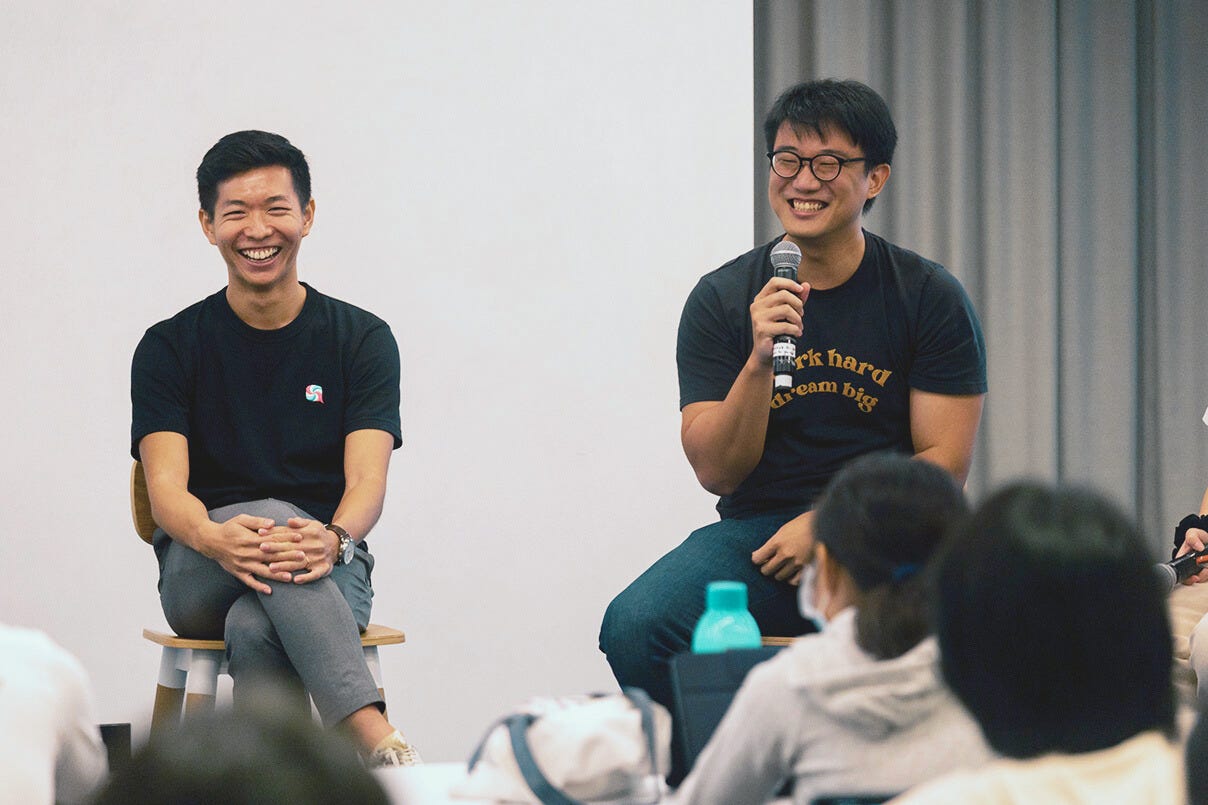Rigor & AI
Have a question? Ask ChatGPT first. Even if you might not get the answer, you will be more informed and look smarter.
When SK and I left our jobs to found a startup in 2022, I could barely code. I knew HTML, CSS, and a little React (but we were and have been using Vue). But it didn’t stop me from wanting to learn and help out on the engineering side. SK was (and still is) supportive and patient with me. He answered all my questions, however dumb they were, and explained concepts thoroughly.
But we both knew the difference in our technical knowledge. Asking him for help when I’m stuck is often a better use of our time than spending hours or days scouring the internet for solutions and figuring it out myself. Ultimately, we need to ship and launch. We are a startup, not a school.
Things have changed since then, though. AI tools like ChatGPT and Windsurf have enabled semi-technical people like me to code more complex projects, fix tricky bugs, and learn along the way.
While I used to drop him a message when I was stuck, it’s now more appropriate to ask ChatGPT or Windsurf first. Sometimes, I could fix the issue “myself”. Even if I couldn’t, I would usually have more information to share with him than “X isn’t working” so that he can debug more quickly. Either way, I learned more than I could have previously and we move faster overall.
Because of this, the expectations are higher now. With such powerful tools to assist me, there is little excuse to drop a vague “X isn’t working” message without trying to fix it myself first. And if I wonder why something is done this way or I think I might have a better idea, I try to stop asking “why not do this?” without using ChatGPT or Windsurf to help me think through it rigorously first.
I push myself to find out as much as possible before reaching out. Not just my original question but as many followup questions as possible.
Admittedly, I’m still finding the balance because I sometimes get stuck with ChatGPT and Windsurf. I would spend hours trying to debug an issue and have no additional useful information to share with SK, all while having other important tasks to work on.
Using AI tools to think also applies to almost everything outside of coding.
For example, I was preparing our financial statements recently. I used to ask my accountant friend when I had questions about bookkeeping and accounting. Now I first ask ChatGPT, which can refer to the FRS used in Singapore.
Most questions we used to ask others should probably be asked to ChatGPT (and friends) first. Only if they, for whatever reason, cannot provide the answer or helpful information, should we ask our friends, colleagues, managers, or mentors.
Can you help me read my draft?
Why is this thing done this way?
How should I tackle this problem?
Where did you find that thing?
How does this sound?
I have changed my mind about “no silly questions”. Many of my silly questions should go to ChatGPT first. Even if ChatGPT can’t help, I'll be more informed. And sometimes, just typing the question helps me think through and understand it better.
The danger, though, is outsourcing the entire thinking process to ChatGPT. Avoid that.
“The man who needs a new machine tool, and hasn’t bought it, is already paying for it.”—Warner & Swasey’s advertisement tagline
After reading about this tagline in Poor Charlie’s Almanack, I subscribed to ChatGPT Plus. I had already been using ChatGPT a lot but on the free plan. The free plan is pretty sufficient but I wanted to use the best models (o3 is my favorite model nowadays for more complex questions) and use them more intentionally. I recently set up custom instructions and custom GPTs to customize ChatGPT more to my needs.
As cliché as this might sound, this is one simple trick to look a lot smarter to others.
Whenever you have a question, pause. Open ChatGPT and ask the question.
It only takes a few seconds. Even a few minutes is a worthy investment.
We don’t only have the world’s information a search away. We have the world’s knowledge an ask away.
There are no excuses.


